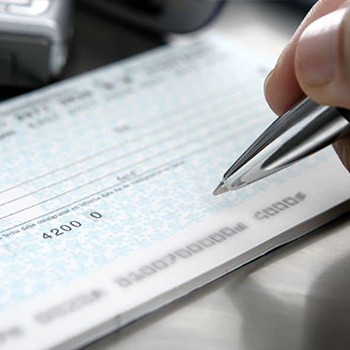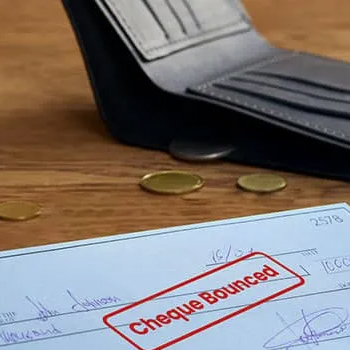The primary law governing for debt collection in the United Arab Emirates is Federal Law No. 18 of 1993, which is on Commercial Transactions. This law states the rules and regulations for the process of debt collection in UAE for business debt collection. UAE has become a business and commercial hub, and especially Dubai has become a corporate hub for the world. When a commercial hub, attract entrepreneurs and investors and for business, then he also has to pay attention to rules, regulations, laws and financial recoveries. UAE also offers an exemption of maximum taxes, free zones, mediation, and several trade benefits that is why it brings investors throughout the world. Therefore, the UAE implements proper laws for litigations and other financial recoveries.

How does it Work?
The Federal Laws and the UAE Penal Code govern the debt collection laws in Dubai. However, these laws entertain the recovery of debts. Cases of dishonoured checks, overdue payments and fraudulent financial activities are reported under this law. The key aspects of debt collection include civil procedures, criminal liability, mediation, and settlement. As we told you before that the debt collection and its laws are governed with and under civil laws. Debt collection basically is a process of mediation outside the court. But when debt collection is linked with litigation then it turns to a civil case and dealt under civil penal code of UAE federal law.
Therefore, the creditor can file a report against the unpaid amounts for the civil process. The UAE Penal Code will impose penalties such as fines and imprisonment through a verdict. However, cases do not have to go to court every time but can be resolved out of court. This is the beauty of debt collection indeed. Therefore, Debt recovery Dubai is popular, especially by Ask The Law – Al Shaiba Advocates and Legal Consultants, because it helps to recover the unpaid debts, including salaries in Dubai and all over the UAE.
Debt Collection Process
The debt collection process is simple but has to be handed by the experienced professionals. The following steps ensure a successful debt collection in Dubai and all over the UAE:
- Communication
Quick debt collection is only possible with clear communication between the parties and clear understanding of law. The debtor and the creditor must communicate about the non-payment issue. However, as a responsible businessman in the UAE, the creditor must opt for an amicable solution before filing the case in court. They can extend the deadline for the payment. But, if it is impossible, the communication can be formalized by sending follow-up messages and reminders to the debtor. The debt collector has to make sure that demand is conveyed properly and in a good way. It means, the demand must be sent to debtor on right time and with the support of supporting documents.

2- Appoint a Debt Collection Agency or Law Firm
Suppose the creditor does not get a response from the debtor despite sending them letters and reminders (it is also called as first party debt collection), then they should hire the assistance of debt collection agencies or law firms. They will talk to the debtor and negotiate on the terms and conditions of debt collection. Moreover, the debt collector will also ensure the debtor’s financial status for recovery purposes.
3- Filing a Civil Case
If the debtors do not negotiate terms with the debt recovery agency, the creditor has right to open the case in Dubai Courts. However, case filing requires documents and invoices along with a communication record to ensure justice for both parties.
4- Implementation of the Court Judgements
Failure to reach an amicable settlement will result in court proceedings. If the debtor does not pay the amount even after the court proceedings, the creditor has the legal right to ask the court to freeze the debtor’s bank accounts and seize all their assets to settle the debt. It is the part of court execution process. Lawyers in Dubai, can guide very well on this subject.

Matter of Bounced Checks in the UAE
The most common type of debt collection is bounced checks. Under the UAE Penal Code, issues regarding bounced checks are strictly monitored to ensure quick debt recovery strategies. Different penalties are imposed if the check is bounced in the UAE. The debtor can be sent to prison or pay a heavy fine. However, the creditor can take further legal action in criminal and civil cases to get the final settlement.

Debt Collection for Businesse
Businesses must collect debt promptly to maintain their cash flow and ensure financial stability. Some laws allow businesses to take strict legal action against the debtor for non-payment. However, companies can take some protective measures, such as hiring a qualified team of debt collection agents. Also, arbitration and mediation allow debt recovery cases to resolve disputes in a friendly manner. Businesses can have their own first party debt collection services as well as third party debt collection services which is hired from a professional service provider.
Resolving Debt Collection Disputes Amicably:
A settlement out of court is an alternative dispute resolution. The ADR method ensures time-saving and a cost-effective strategy to intact your business relationship and resolve debt collection issues as:
- Mediation
Mediation is one of the common methods for resolving issues like debt collection. In this setting, there is one neutral mediator. Unlike in the court system, there are no separate lawyers. The mediator ensures that both sides are heard and agree on mutual grounds for the case. Debt collection UAE is basically a mediation indeed. Working on debt collection through such methods is helpful because it resolves disputes quickly, and the confidentiality of the case remains. Most importantly, business relationships are preserved. If the mediation does not work then credits have right to open the case.
Fair Treatment: Ending Note
The debt collection laws in Dubai ensure that the rights of creditors and debtors are protected in the UAE. Both parties are also obliged to certain requirements. The creditor has the right to get the payment on time, whereas the debtor has the right to know about the debt claim. Consequently, the creditor can hire legal services for debt collection, and the debtor has the right to negotiate the payment terms. Debt collection in Dubai ensures transparency in the business environment. To avoid debt collection disputes, businesses in Dubai should keep strict credit policies and hire debt collection agencies to develop better business financial strategies. Companies should have a clear contract and add a clause related to breach of contract so that the debtor is careful about non-payments.
Read More: Debt Collection USA

